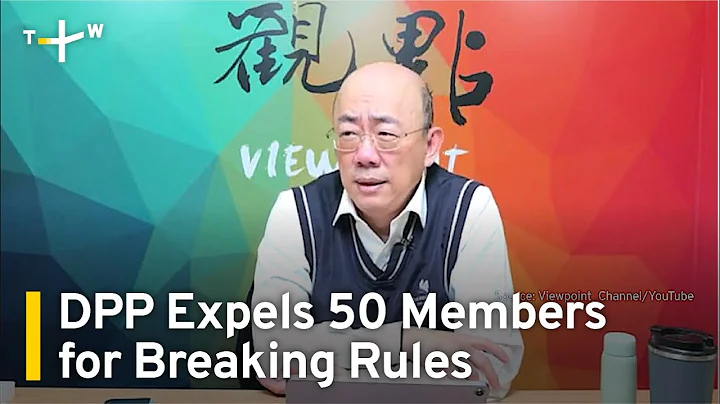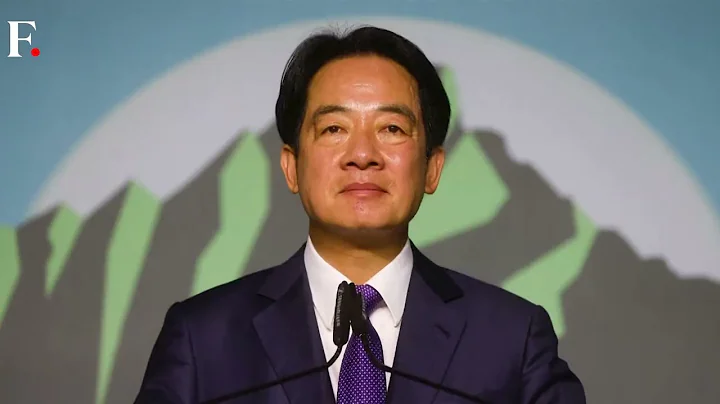Mr. Wang Zaixi recently stated that the Democratic Progressive Party will not be able to rule in Taiwan for a long time in the future. The reasons given are: First, most voters do not want to see the Democratic Progressive Party being "one party dominant", and the United States does not like the long-term rule of one party in Taiwan. , even if the Kuomintang cannot come to power, the People's Party or other parties will come to power; secondly, the DPP does not recognize the "1992 Consensus", cross-strait relations cannot be resolved, Taiwan's economy cannot be resolved, the international space cannot be resolved, and the living standards of the Taiwanese people cannot be resolved. If it cannot be improved, Taiwanese society cannot be stable, and public opinion will rebound. This is the law of social development; third, the DPP is a political party that is good at elections but not good at social governance. Over time, it has become corrupt, black money politics, and power is not rewarded. Waiting for it will be fully exposed, and people's dissatisfaction will explode; fourthly, the DPP is structurally a party governed by factions, and the next step will be the struggle over the succession of power.

I don’t quite agree with Mr. Wang’s judgment. My personal view is that if the Democratic Progressive Party is elected for more than three consecutive terms, it is possible for the DPP to be in power in Taiwan for a long time. The reasons are as follows:
First, the island has formed a stable pattern of "one-party dominance" of the Democratic Progressive Party.
The Democratic Progressive Party took advantage of the opportunity to take full power, went all out to pursue its political opponent the Kuomintang, and created a political environment conducive to long-term governance. Most voters in Taiwan are adaptable to the DPP's "one-party dominance" and full power. The Kuomintang has lost its party soul and appeal, and its political line has made mistakes again and again, posing no real challenge to the Democratic Progressive Party, which controls the governing resources and the majority in the "Legislative Yuan". As a white force, the People's Party does not yet have the conditions to become stronger in the island's political environment, let alone become a political pole comparable to the national and democratic parties.
Second, Taiwanese society has been seriously "greened".
After more than four years of vigorous slander and misleading public opinion, most Taiwanese people have linked the "1992 Consensus" to "one country, two systems". The "1992 Consensus" has limited impact on Taiwan's elections, and the Kuomintang even regards it as a "negative asset" ". The separatist tendency in Taiwanese society has become the mainstream and has adapted to the state of "cold confrontation" or even "hot confrontation" in cross-Strait relations.
Third, the income and quality of life of Taiwanese people are relatively stable.
The number of Taiwan's middle class is stable. As Taiwan's stock market has repeatedly hit new highs, more than 11 million shareholders have made huge profits from it, involving almost every family. Last year, each shareholder made an average profit of 673,400 yuan, and this year it will only be more. Taiwan’s foreign exchange reserves exceed US$500 billion, ranking fifth in the world; its annual trade surplus with the mainland exceeds US$100 billion. Even if the mainland adopts certain economic restrictive policies against Taiwan in the future, the surplus will not decline significantly.
Fourth, the DPP’s electoral ability far exceeds that of its political opponents.
The DPP is good at elections, which precisely provides the conditions for its long-term governance. As the "younger generation" who have grown up with "Taiwan independence" education have the right to vote, the DPP's base will further grow.
Fifth, the DPP is more united than the KMT.
Power rewarded by mediocrity is a characteristic of Taiwan's political arena. The Democratic Progressive Party has been doing it, and everyone can accept it. Even if corruption and fraud have limited damage to the election, Tsai Ing-wen's academic fraud has been confirmed, and it is sufficient to still be elected with a high vote. prove. The Democratic Progressive Party has complex factions, but it is rich in political talents. Lai Qingde, Zheng Wencan, Lin Jialong and others are all capable of running for election. Although the struggle over the succession of power will be fierce, once someone comes out, they will immediately gather together to fight with all their strength. This is much better than the Kuomintang.
Sixth, the DPP does not lag behind in being pro-American.
It is not absolute that the United States does not like the long-term rule of one party in Taiwan. As long as it serves the interests of the United States, the United States does not mind which political party in Taiwan can be in power. Tsai Ing-wen and the Democratic Progressive Party are all-rounded and cannot be as reckless as Chen Shui-bian back then. Instead, they will fully cooperate with Biden "balanced" policies. Moreover, Tsai Ing-wen has made up her mind to strategically lean toward the United States and lose her loyalty to the United States at the expense of major interests. There is no reason for the Biden team to lean toward the KMT in the election.
To sum up, Unless the mainland resolves the Taiwan issue before 2024, or gives an ultimatum - the coming to power of a political party advocating "Taiwan independence" means "the possibility of peaceful reunification is completely lost", the DPP will most likely be in power. It will occupy the power to govern Taiwan for a long period of time. In fact, Tsai Ing-wen is already preparing for the long-term rule of the Democratic Progressive Party, buying arms, building submarines, promulgating the "anti-infiltration law", establishing a "constitutional amendment committee", promoting "Taiwan independence" textbooks, and seeking to join the U.S.-led supply chain value chain, etc.
In fact, Tsai Ing-wen is already preparing for the long-term rule of the Democratic Progressive Party, buying arms, building submarines, promulgating the "anti-infiltration law", establishing a "constitutional amendment committee", promoting "Taiwan independence" textbooks, and seeking to join the U.S.-led supply chain value chain, etc.




















